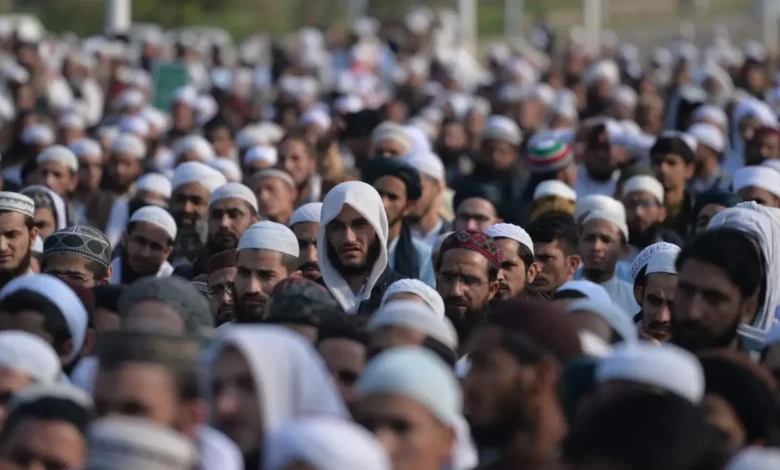
Consequently, it has recently been reported that members of the Ahmadiyya Muslim Community in Pakistan have been subjected to a wave of detentions and arrests. It seems that this crackdown was causing due to their recent celebration of Eid al-Adha, and they were accused of violating some provisions of the country’s constitution.
Last few days, several Ahmadis have been arrested by the police at Gujranwala City for the crime of slaughtering a goat on the occasion of Eid.
This happened only a week after the same scenario was enacted in Toba Tek Singh district when an Ahmadi was named in the FIR for the same reason as per the complaint filed by a TLP official.
Unfortunately, this is not the exception to the rule; on the contrary, it happens quite frequently. In the year 2015, there were five reported instances of the above-stated types of cases in Punjab province. Earlier this month, the same incident occurred targeting the members of Ahmadis where two people were shot dead in Mandi Bahauddin.
These actions are legal by Section 298- C of the Pakistan Penal Code, which makes it unlawful for Ahmadis to pose as Muslims or even propagate their religion. This unreasonable clause is a fallout of a constitutional provision that was effected in 1974, which stated that Ahmadis are non-Muslims.
About Ahmadiyya the main idea is to acknowledge Mirza Ghulam Ahmad as the Promised Messiah and the subsequent Zia’atullah, which means a prophet after Prophet Muhammad. This basic doctrine has earned them hatred from ultra-orthodox Pakistanis who deem them heretics.
Ahmadis have been experiencing growing persecution since the 1970s; their mosques have been attacked, vandalized, and closed in many regions.
National Commission for Human Rights documents report that between 1984 to 2023, 280 Ahmadis have been murdered through targeted violence and that hundreds of other Ahmadis have faced assaults and destruction of their property.
Looking at the constitutional provisions, it is very clear that religious minorities are protected by the Constitution of Pakistan to practice their faith, but the action taken by the state to suppress Ahmedi seems to be going against the predominance of the provision.
A recent ruling in the year 2022 even went on to decree that preventing non-Muslims from practicing their faith amounts to a violation of the constitution of the country.
Nevertheless, they fail to recognize that religious intolerance is deeply entrenched in society, and the state’s policy of legitimately depriving Ahmadis of their rightful status persists in perpetuating this oppressive crackdown. While Pakistan tries to deal with this problem, the future of the persecuted Ahmadi people remains uncertain.



